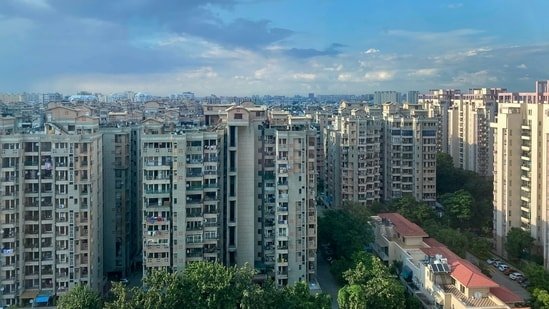In a move expected to benefit 6.5 lakh property owners across Bengaluru’s urban, rural, and south districts, the Karnataka government has launched a large-scale e-Khata regularisation initiative. The drive covers around 2.8 lakh properties in Bengaluru urban and 1.8 lakh each in the rural and south districts that are eligible for e-Khatas, according to data from the Rural Development and Panchayat Raj (RDPR) department.
The initiative, part of the e-Swathu digitisation programme, seeks to bring thousands of unauthorised or unrecorded properties under the official documentation system, granting them formal recognition and facilitating smoother ownership transfers and taxation.
Officials said the initiative will enable residents in gram panchayat limits around Bengaluru to obtain digital e-Khata certificates, addressing long-pending disputes over property legality and improving access to civic services. According to a Times of India report, the drive is also expected to significantly widen the state’s property tax base, enhance market confidence, and boost liquidity in peri-urban real estate zones. Additionally, it will help property owners secure bank loans against their properties.
Officials from the Rural Development and Panchayat Raj (RDPR) Department were quoted by the newspaper as saying that the state currently oversees approximately 1.5 crore property records. So far, over 97 lakh records have been digitised and integrated into the department’s central database. These digitised entries will now serve as the foundation for issuing e-Khatas across Karnataka’s villages, marking one of the most extensive rural property documentation initiatives ever undertaken in the state.
Data from the department showed that approximately 8.2 lakh properties in the Bengaluru Urban district already have e-khatas, while 2.7 lakh properties have been listed by the department for regularisation. This will bring them into the property tax net.
In May, Karnataka’s Rural Development and Panchayat Raj Minister Priyank Kharge had announced that the government would begin issuing ‘B’ Khatas for unauthorised rural properties starting in July. The move is expected to bring nearly 95 lakh properties under the state’s e-Swathu digital property record system, expanding formal recognition for rural landowners.
Kharge had said that significant progress has already been made in preparing for the rollout. Over the past two years, the department has distributed property forms for about 50.05 lakh properties, laying the groundwork for a full-scale digital inclusion of rural properties across Karnataka.
E-khata is an electronic version of the traditional khata certificate, introduced by the BBMP in Bengaluru and other local bodies in October. This digital record is available online, where property owners can apply for, download, and verify their khata without needing to visit the municipal office.
What is the e-Swathu initiative?
The e-Swathu program is an online system launched by the Karnataka government to manage and digitise property records in rural areas. It helps gram panchayats keep track of property ownership, transfers, and taxes in a transparent and organised way. The aim is to replace old manual records with digital ones, making it easier for citizens to access and verify their property details. It aims to provide legal documentation to over 95 lakh illegal properties across Karnataka.
Through this platform, people living in rural areas can access important property documents, such as Form 9 (A-Khata) and Form 11, which are necessary for registering properties, paying taxes, or applying for loans. The e-Swathu system also helps ensure that property transactions are recorded correctly and prevents the misuse or duplication of land documents.
The program plays a key role in reducing land disputes and illegal property sales, according to officials. By maintaining a central database for every gram panchayat, the government can identify unauthorised layouts and ensure proper regulation.




